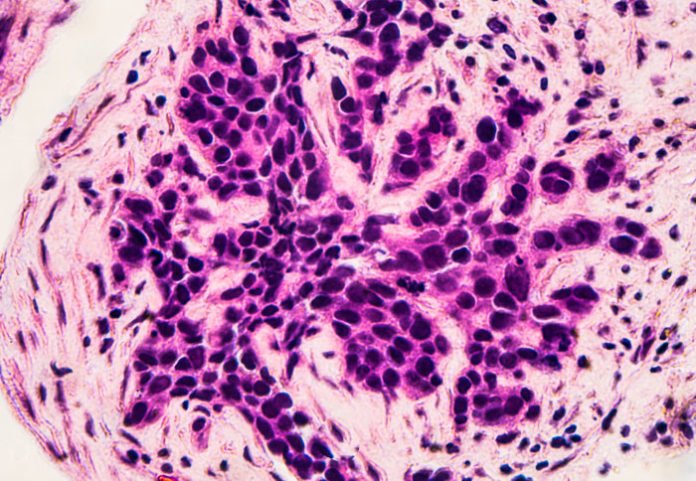Scientists at the Imperial College London have found another class of medication that can possibly help disease patients who never again react to existing treatments. The medication may not end up accessible to patients for various years yet, yet analysts trust that if clinical trials are effective, it could be utilized to handle an assortment of treatment-safe growths.
Patients with bosom malignancy for instance often end up impervious to existing hormone-based medicines, prompting the illness getting to be deadly.
An early lab-based trial of ICEC0942 was fruitful in focusing on safe bosom tumors and demonstrated negligible symptoms. ICEC0942 was then authorized to Carrick Therapeutics, who formed it into a particle named CT7001, which they have taken to beginning period clinical trials in under two years.
The primary patient was given the medication in November 2017 as a feature of Carrick’s a Phase I clinical trial to evaluate its security and how well it can be endured. The trial is as yet continuous, so comes about are not accessible yet.
The drug targets an enzyme called CDK7, involved in directing cells through their lifecycle, which consists of growth, DNA replication, and cell division. CDK7 is also involved in the process of transcription, a vital step in gene expression – the creation of proteins to carry out cell functions. Particular cancers, such as treatment-resistant breast cancers, have a unique dependence on transcription, meaning targeting CDK7 may be particularly effective.
By inhibiting transcription, ICEC0942 shuts down the ability of cancer to spread. As well as breast cancers, cancers such as acute myeloid leukemia and small-cell lung cancer are particularly transcription-dependent, so ICEC0942 may work well for these two, especially where they have become resistant to other treatments.
Professor Charles Coombes, from the Department of Surgery & Cancer, said: “Treatment-resistant tumors represent a significant threat to patients, as once cancer stops responding to treatments there is increasingly little clinicians can do.
“Drugs such as these could help to shift the balance back in favor of the patients, potentially providing a new option to patients for who existing treatments no longer work.”
Professor Tony Barrett, from the Department of Chemistry, said: “This work is the result of extensive collaboration between chemists, biologists, and clinicians, which has helped to bring a new treatment from discovery to clinical testing in record time, streamlining the process.”
The medication focuses on a chemical called CDK7, engaged with coordinating cells through their lifecycle, which comprises of development, DNA replication, and cell division. CDK7 is likewise engaged with the procedure of interpretation, an imperative advance in quality articulation – the making of proteins to do cell capacities.
Specific diseases, for example, treatment-safe bosom malignancies, have an interesting reliance on interpretation, which means focusing on CDK7 might be especially viable.
By repressing interpretation, ICEC0942 close down the capacity of the malignancy to spread. And additionally bosom malignancies, growths, for example, intense myeloid leukemia and little cell lung tumor are especially translation subordinate, so ICEC0942 may function admirably for these as well, particularly where they have turned out to be impervious to different medicines.
From early endeavors, an extensive synergistic group was at the end established for medicating disclosure from ‘seat to bedside’, coordinated by Dr. Matthew Fuchter in the Department of Chemistry. Conceivable mixes for CDK7 hindrance were displayed utilizing computational medication configuration, supported by cooperation with Emory University.
At last, a hopeful particle called ICEC0942 suppressed tumor development in an extensive variety of growth composes in lab tests. Also, lab thinks about demonstrated ICEC0942 worked better in a blend with customary hormone treatments for estrogen receptor positive bosom malignancy cells, which have not yet turned out to be safe.
It is this atom, in oral pill shape, that was taken forward via Carrick as CT7001 and is at present in Phase I clinical trials. On the off chance that the Phase I trial demonstrates effective, the compound must pass additionally phases of trial throughout the following couple of years before it ends up accessible to patients.
Dr. Iain Foulkes, Cancer Research UK’s executive director of research and innovation, said: “It’s exciting to see how Cancer Research UK’s partnerships with both academia and industry are bringing urgently needed new tests and treatments to patients.
“Drug resistance continues to be a major challenge across many cancer types so it’s vital that we explore new ways to tackle tumors that have stopped responding to standard therapies. We hope that this promising new class of drug will offer more options to patients who have few left available to them, and help more people survive their cancer.”
The study is published in Molecular Cancer Therapeutics.
